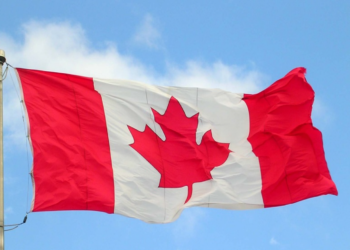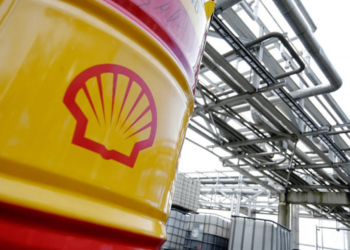Nigeria is currently undergoing forex reforms, yielding mixed results. Despite these efforts, the exchange rate remains significantly lower than its opening rate of about N990/$1, marking a depreciation of 36.5% so far this year.
In response to the exchange rate volatility, the Central Bank of Nigeria has implemented several policies throughout the year, many of which have been positively received.
However, most Nigerians believe more needs to be done, pointing to the current depreciation and the disparity between the official and parallel market rates. But what exactly needs to be done?
Given the increasing reliance on ChatGPT for tackling complex issues, we decided to engage the AI platform for possible solutions to Nigeria’s FX challenges. Our focus was on identifying recommendations that the AI might suggest, particularly those that have not yet been considered or implemented by the country.
ChatGPT Says
a. Boost FX Reserves:
- Oil Exports: Maximize crude oil output and ensure revenues from oil exports are repatriated. Address pipeline vandalism and oil theft to sustain production levels.
- Non-Oil Exports: Increase incentives for exporters of goods and services (e.g., agriculture, technology, and creative industries) to repatriate earnings through official channels.
What Nigeria is doing? From recent analysis, Nigeria has seen an increase in crude oil exports recording a total foreign trade export rising to N41.5 trillion in the first 9 months of the year.
This compares to N29 trillion for the whole of 2023. But if you adjust for an average exchange rate of N750 for 2023 and N1500 for 2024 respectively it comes to $38.6 billion and $27.6 billion respectively. When divided into months it is $3.2 billion monthly in 2023 and $3 billion in 2024.
In terms of non-oil exports, Nigeria has faired a bit better with $461 million in 2024 and $349 million in 2023 but not enough to organically boss forex reserves.
In a nutshell, Nigeria’s forex reserve have been boosted mostly from foreign currency denominated debts.
ChatGPT Says
b. Streamline FX Policies:
- Unify exchange rates by closing the gap between official and parallel markets to curb speculative attacks and increase confidence in the naira.
- Reduce multiple FX windows and implement a transparent, market-driven FX pricing mechanism.
What is Nigeria doing? Nigeria unified its exchange rate in theory in June 2023 and has since then introduced several policies that has shifted it towards a more market driven economy. Just recently, the apex bank reduced multiple forex windows and introduced the EFEM that is expected to lead to better price discovery for the exchange rate.
ChatGPT Says
c. Attract Foreign Investment:
- Portfolio Investments: Create incentives for foreign portfolio investors (FPIs) through higher interest rates on naira-denominated assets.
- FDI: Implement policies that attract foreign direct investments (FDI), such as tax breaks, improved ease of doing business, and stable regulatory environments.
d. Leverage Diaspora Remittances:
- Offer attractive rates and benefits for remittances via official channels, ensuring that diaspora inflows contribute significantly to FX reserves.
What is Nigeria doing? Despite an initial surge in capital importation in the first quarter of 2024, Nigeria has struggled to attract the required size of foreign investment. So far, we have attracted $7.2 billion this year compared to $3.9 billion in the whole of 2023.
But this is still far off what we may be needing especially when you compare this to 2017 and 2018 when the country attracted $12.2 billion and $16.8 billion respectively.
However, we have seen major gains with remittances with the apex bank reporting that it has grown from about $200 million monthly to $600 million monthly. The CBN targets $1 billion monthly from remittances
ChatGPT Says
e. Interest Rate Adjustments:
- Maintain or increase benchmark interest rates to attract foreign inflows and reduce capital flight.
f. Control Money Supply:
- Avoid excessive printing of naira, which can fuel inflation and weaken the currency. Strengthen oversight on fiscal deficits to limit reliance on CBN overdrafts.
g. Combat Inflation:
- Use tools such as open market operations (OMOs) to manage liquidity and bring inflation under control, as high inflation erodes the naira’s value.
The CBN has steadily increased interest rates this year adjusting the monetary policy rate from 18.75% to 27.5% a whopping 875 basis point increase.
While this has impacted the economy from an inflation rate standpoint, it is also meant to help incentivize foreign investment inflows.
So far we have attracted about $3.4 billion in money market instruments up from just $428.9 million in the whole of 2023. While not enough to significantly boost liquidity it is still significant considering where we are coming from.
However, money supply has trended upwards at about N107 trillion this year up from N64.3 trillion at the start of the forex policies in June 2023.
The CBN has also steadily issued open market operations estimated at over N2.5 trillion this year alone as it relies on high interest rates to attract foreign investments.
ChatGPT says
h. Combat FX Speculation:
- Enforce stricter measures against hoarding and speculative trading in the FX market.
- Monitor and penalize illicit financial flows (IFFs) that drain FX reserves.
i. Fiscal Discipline:
- Align fiscal policy with monetary objectives. Curb excessive borrowing and manage the national debt to reduce pressure on the naira.
j. Subsidy Removal and Investment:
- Phase out FX subsidies for fuel and other commodities, redirecting savings into productive sectors like infrastructure and education.
On the fiscal policy side, the federal government has talked about enforcing fiscal discipline as a way of reducing the fiscal deficits.
Yet, the country is running at over N4 trillion in fiscal deficits in the first half of the year and plans another N13 trillion deficit come 2025.
In addition, we have steadily increased public debt with figures above N135.6 trillion as of June 2024 with local currency debt adding N6 trillion.
Meanwhile, in terms of subsidy removal, the government as made the bold decision of removing fuel and electricity subsidy despiste the effect it has had on inflation. Whilst this is yet to reflect on exchange rate stability or strengthening, some suggest things may have been worse had it not been taken out.





















